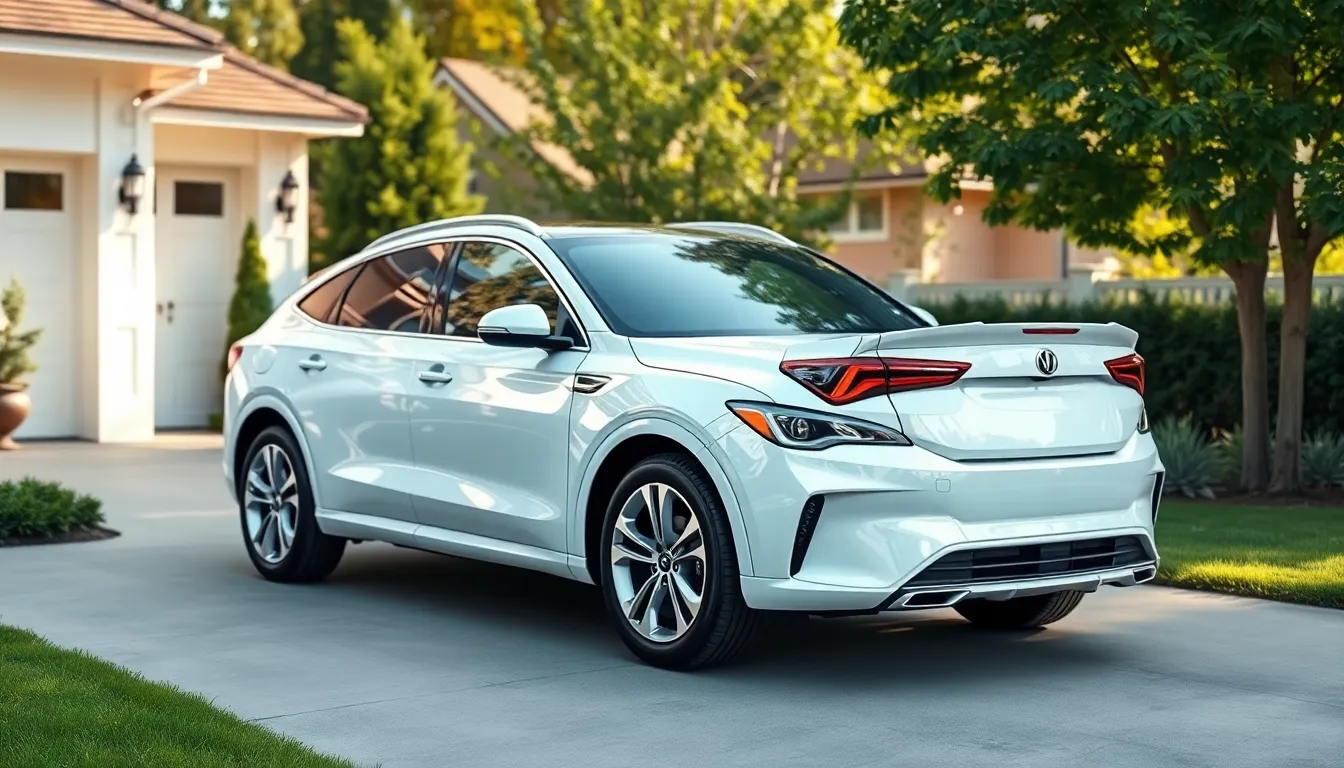In a world where “new car smell” is practically a fragrance of its own, the allure of buying a new vehicle can be hard to resist. But before diving headfirst into a sea of shiny paint and plush interiors, it’s worth asking: is it really worth it? With prices soaring and options galore, the decision can feel as daunting as parallel parking on a busy street.
Buying a new car might seem like a ticket to freedom and status, but it’s not all smooth rides and open highways. From depreciation to insurance costs, there’s a lot more to consider than just the latest tech features. So, buckle up as we explore the pros and cons of taking the plunge into new car ownership. You might just find that the best ride is the one that fits your budget and lifestyle, not just your driveway.
is buying a new car worth it
Determining the value of a new car involves weighing numerous factors. New vehicles typically come with the latest technology, safety features, and warranties. Such enhancements can significantly improve the overall driving experience.
Depreciation plays a crucial role. New cars lose approximately 20% of their value within the first year. This rapid decline raises concerns for many buyers.
Insurance costs also need consideration. Newer vehicles often carry higher premiums due to their value and features. Such increases can impact monthly budgets.
Financing options are available, providing flexibility. Many manufacturers offer competitive interest rates, making new car purchases more feasible. Buyers should evaluate their loan options before committing.
Fuel efficiency represents another essential aspect. Many new models feature advanced engines that provide better mileage. Cost savings on fuel can add up over time, making new cars appealing to some buyers.
Resale value can influence choices as well. Some brands retain their value better than others, appealing to those concerned with future selling options. Researching the longevity of a vehicle’s worth is beneficial.
Maintenance requirements typically decrease with newer cars. Warranties often cover repairs for the initial years. Less frequent trips to mechanics can save money and time in the long run.
Considering environmental impact is increasingly relevant. Many modern cars are more fuel-efficient or fully electric. Such choices align with sustainable living goals for those who prioritize eco-friendliness.
Prioritizing budget and personal lifestyle ultimately dictates whether purchasing a new car makes sense. Buyers must consider their financial situation along with their driving needs when making a decision.
Advantages of Buying a New Car

Buying a new car offers several advantages worth considering, especially for those valuing modern features and overall peace of mind.
Financial Benefits
Financial savings can stem from buying a new car through lower fuel costs. Many new vehicles boast improved fuel efficiency, which leads to significant savings at the pump compared to older models. Competitive financing options enhance affordability as manufacturers frequently offer attractive interest rates. Resale value often holds better for new cars, providing potential returns when selling. While higher insurance rates apply to new vehicles, the overall cost advantages may still outweigh this expense in the long run.
Reliability and Warranty
Reliability figures highly in the advantages of purchasing a new car. Most new vehicles come with comprehensive warranties that cover repairs for several years, reducing the likelihood of unexpected expenses. Furthermore, the absence of wear-and-tear issues associated with used cars means fewer trips to the mechanic. Dependable performance contributes to stress-free driving, allowing owners to focus more on enjoying their vehicle. Exceptional safety features and the latest technology found in new models enhance driving peace of mind and overall enjoyment.
Disadvantages of Buying a New Car
Buying a new car comes with several downsides that potential buyers must consider. Understanding these drawbacks helps in making a more informed decision.
Depreciation Concerns
Depreciation represents a significant downside of purchasing a new car. Vehicles can lose approximately 20% of their value within the first year, which can lead to financial loss. Reselling a new car often results in less return due to this rapid decline in value. Some vehicles depreciate faster than others, making brand research crucial. Buyers should be aware that the initial excitement of a new car fades when the vehicle’s worth diminishes significantly just after purchase.
Insurance and Maintenance Costs
Insurance rates tend to increase for new cars, placing additional strain on monthly budgets. Newer models usually come with higher premiums, reflecting their greater value and repair costs. Maintenance costs, while potentially lower during warranty periods, may still represent a burden. As vehicles age, maintenance becomes essential, and warranties expire after a few years. Ensuring a realistic assessment of both insurance and maintenance expenses is vital when considering a new car purchase. Evaluating these costs can reveal whether the benefits truly outweigh the financial commitments.
Alternatives to Buying a New Car
Exploring alternatives to purchasing a new car offers various options that align with financial and lifestyle considerations. Evaluating these choices can reveal benefits and savings.
Used Cars
Used cars present a viable option for those seeking budget-friendly alternatives. Their initial purchase price typically remains significantly lower than that of new vehicles. Depreciation, a key concern with new cars, is also less dramatic for used models, retaining a more stable value. Buyers often find well-maintained, certified pre-owned cars that combine reliability with lower costs. Insurance premiums tend to be more affordable as well, enhancing overall savings. Additionally, numerous online platforms facilitate easy research, helping individuals make informed choices.
Leasing Options
Leasing options offer an attractive blend of new vehicle benefits without the long-term commitment of ownership. Monthly lease payments are generally lower than loan payments for new cars, providing consistent budgeting ease. During the lease term, drivers enjoy access to the latest technology and vehicle models. Warranties typically cover the duration of the lease, reducing potential repair costs. At the end of the lease, individuals have the flexibility to return the car or purchase it at a predetermined price. This arrangement allows many to drive new vehicles every few years, providing a sense of novelty without the hefty financial burden.
Factors to Consider Before Purchasing
Deciding to buy a new car involves several key factors. Evaluating the overall budget and understanding financing options play essential roles.
Budget and Financing
Buyers must assess their financial situation before committing to a new car. Monthly payments can fluctuate based on loan terms and interest rates, so analyzing these factors helps avoid unexpected strain on finances. New cars generally come with higher insurance premiums, impacting the overall budget. Exploring dealership financing, which often offers competitive rates, could enhance affordability. Incorporating potential maintenance costs is important too, even if warranties cover initial repairs. Ultimately, understanding all these elements aids in making a financially sound decision.
Lifestyle Needs
Lifestyle greatly influences the type of car purchased. Daily commutes, family size, and personal preferences determine what vehicle fits best. For instance, those with larger families might prioritize spacious SUVs or minivans for comfort. Individuals seeking efficiency may lean toward compact cars that offer better fuel economy. Travel habits also matter; long-distance drivers may need cars with advanced technology for navigation and entertainment. It’s crucial to align vehicle traits with everyday activities, ensuring that the new car meets practical requirements while complementing lifestyle choices.
Conclusion
Deciding whether to buy a new car involves careful consideration of various factors. It’s essential to weigh the excitement of driving a new vehicle against the financial implications. While new cars offer modern technology and reliability, the costs associated with depreciation and insurance can quickly add up.
For those who prioritize the latest features and peace of mind, a new car might be a worthwhile investment. However, individuals should also explore alternatives like used cars or leasing, which can provide significant savings. Ultimately, the best decision aligns with personal financial situations and lifestyle needs, ensuring that the choice made is both practical and beneficial in the long run.

